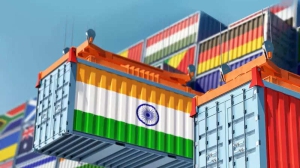As geopolitical tensions escalate and new security challenges emerge, the upcoming 16th BRICS Summit in Kazan promises to be a critical turning point
The 16th BRICS Summit, set to take place from October 22-24, 2024, in Kazan under Russia’s chairmanship, comes at a critical juncture for global affairs. The summit will address pressing issues like the geopolitical tensions caused by escalating regional conflicts worldwide, the need for effective governance in emerging societies, and the evolving challenges of environmental degradation.
With these multifaceted threats becoming more severe, there is a growing urgency for BRICS nations—Brazil, Russia, India, China and South Africa, along with newly inducted members Egypt, Iran, the UAE, Saudi Arabia and Ethiopia—to modernise and diversify their security and economic frameworks. A recent BRICS National Security Advisors’ (NSA) conclave in St Petersburg underscored the urgency of these challenges. India’s National Security Advisor highlighted the critical role of Information and Communication Technology (ICT) in tackling modern security concerns, particularly the evolving threat of transnational terrorism.
ICT will likely remain a focal point during the Kazan summit as BRICS nations look to leverage advanced technology to mitigate security risks and ensure more effective regional and global cooperation. Russia has expressed its intention to prioritise five key areas of partnership at the summit: politics, security, the economy, finance and cultural and humanitarian ties. In light of the rising number of security threats confronting the BRICS nations, this broad-ranging focus is timely. The inclusion of the five new BRICS members adds to the group’s strategic importance. Their cooperation will be vital in addressing the sudden and unpredictable threats that arise from both state and non-state actors.
This includes real-time sharing of geospatial data, which will be instrumental in improving border security and countering transnational terrorism.The Kazan summit will likely focus on enhancing cooperation in areas such as economic development, public health, border security, and geospatial information sharing. These discussions could lead to tangible outcomes in the form of new initiatives for infrastructure development, increased bilateral trade, and innovative technological solutions.
These developments would further strengthen ties between India and BRICS, especially Russia, while fostering a new era of defense cooperation. Given the rise of security challenges across the BRICS countries, particularly concerning border disputes and terrorism, the summit presents an opportunity to improve international coordination on these matters. Satellite data sharing, military intelligence cooperation, and logistical support are expected to be central components of future BRICS security strategies.
For instance, one significant point of discussion could be China’s expansionist policies, which have raised concerns about regional stability. Additionally, the ongoing Russia-Ukraine war is another issue that could dominate the agenda, with hopes for a possible resolution. The summit holds great potential for strengthening global cooperation in fighting transnational terrorism. This cooperation could encompass several key areas, including the financing of terrorist activities, enhancing police cooperation, and addressing cyber threats.
The summit may also discuss tightening security measures at borders and maritime zones, alongside the development of advanced communication networks and security management systems. One of the key challenges in counter-terrorism will be dealing with groups motivated by religious ideologies. The summit may explore strategies for anticipating and neutralising these threats, focusing on cooperation between the security and defense establishments of BRICS members. As nations adopt a more pragmatic and bilateral approach to foreign policy, there is less concern that enhanced BRICS cooperation would adversely affect relations with other major powers, such as the United States. Another area requiring immediate attention is the threat posed by chemical weapons in the hands of terrorists.
These weapons, often difficult to detect and transport, pose a significant risk. International collaboration in formulating stricter regulations and preventing the acquisition of such weapons could be vital in managing this growing concern. Furthermore, the BRICS nations could work together to establish a robust mechanism to limit the accessibility of dangerous materials like RDX, Erythritol Tetranitrate (Penta), and advanced weapons such as AK-47s.
Efforts to curb drug trafficking are also expected to feature prominently at the summit, particularly in light of the strong nexus between drug cartels and terrorist groups in regions like Pakistan, Afghanistan, and Southeast Asia.
Enhanced policing cooperation among BRICS members could lead to more effective crackdowns on these criminal networks. India’s leadership approach, as demonstrated by Prime Minister Modi in recent international forums like the UN Summit on September 23, 2024, emphasises a human-centric focus.
At the BRICS summit, India is expected to push for policies that address economic, technological, and social gaps, thereby advancing the interests of the Global South. India’s growing influence on the global stage is also reflected in its strong relationships with both the United States, the world’s largest democracy, and Russia, one of its closest strategic partners.
These ties place India in a unique position to play a leading role at the BRICS summit. The meeting in Kazan is likely to provide a framework for enhanced security-related information sharing and greater confidence-building measures among BRICS nations.
(The author is a recipient of the Bharat Gaurav Award and an expert in strategic affairs; views are personal)


























